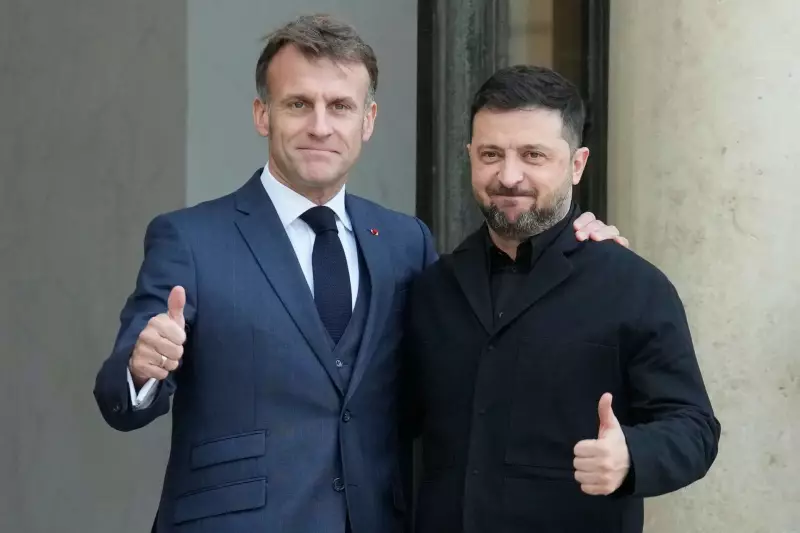
In a significant move to bolster Ukraine's long-term security, France and Ukraine inked a major defence and security agreement on Monday. The landmark pact, signed in Paris by French President Emmanuel Macron and Ukrainian President Volodymyr Zelenskyy, opens the door for Kyiv to acquire up to 100 advanced Rafale fighter jets, alongside critical military hardware like drones, radar systems, and new air-defence technology.
A Strategic Partnership Forged in Paris
The deal was finalised during President Zelenskyy's visit to France, which marks his ninth trip to the country since the full-scale war began in February 2022. President Macron clarified that the delivery of the Rafale jets, which are the top-tier aircraft in the French military fleet, would be a long-term process spanning the next 10 years. However, he emphasised that work on producing drones and interceptors for Ukraine would commence much sooner, before the end of this very year.
Macron addressed the gravity of the current situation, stating that Ukraine is facing a "difficult moment" in the war. He placed the blame squarely on Russia, accusing Moscow of having an "addiction for war" and stated that "Russia alone is making the choice to continue this war and to intensify it." Despite the challenges, Macron expressed hope for peace before his presidential term ends in 2027, but stressed that a robust Ukrainian military is essential for any lasting peace.
Details of the Historic Defence Agreement
The French presidency provided further details, confirming that the agreement includes potential future contracts for the 100 Rafale jets "with their associated weapons". It also covers the joint development of new SAMP-T air-defence systems, radars, and drones. President Zelenskyy hailed the pact as a "historic agreement" for his nation. This deal is separate from a previous letter of intent Ukraine signed to purchase 100 to 150 Swedish Gripen jets.
While France has sent older Mirage jets in the past, this is the first time it has committed to providing its most modern Rafale fighters. No financial details were disclosed, but reports suggest France plans to use part of its national budget and may also tap into joint EU borrowing tools to help finance this massive deal, a move that could potentially face resistance from Germany.
War Front Realities and Domestic Challenges
Zelenskyy's diplomatic mission to France comes at a critical juncture for Ukraine. On the ground, Russian forces are advancing, with the defence ministry in Moscow claiming the capture of three more villages in the east. Overnight strikes in the eastern Kharkiv region killed three people, following an attack on Kyiv apartment buildings that claimed seven lives on Friday.
Domestically, Zelenskyy is grappling with a corruption scandal. He has recently ordered major changes in state-owned energy companies, told two ministers to resign, and imposed sanctions on a former business partner accused of orchestrating a corrupt scheme. When asked if Ukraine had done enough to tackle corruption, Zelenskyy admitted, "It is not enough. We will continue the appropriate actions." Macron echoed the need for reform, stating that Ukraine's EU membership goal requires "demanding and deep efforts and reforms notably on governance and fight against corruption."
Beyond the agreement signing, the two leaders also visited Mont Valerien, west of Paris, where France and Britain are preparing a headquarters for a potential future international force that could be deployed in Ukraine after a ceasefire. As Ukraine braces for a difficult winter, this new defence partnership with France aims to build a army capable of deterring future Russian aggression.





